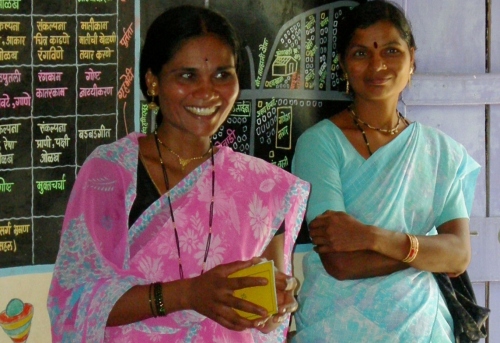Breakout sessions typically make me want to break out my smartphone or break out of the room. Rarely does the side stage stack up with the main act. But at a recent conference for human resources professionals, one breakout session was full of fireworks about a controversial subject—what it means to be a faith-based organization. What the speaker shared, however, left me disheartened.
There is no more imprecise label than faith-based. It holds a hundred meanings, each of them different than the next. For nonprofit organizations that wear this label, our interpretation of its implications varies even more. And these differences became clear in the session.

The presenter—let’s call her Sharon—hailed from a widely-known faith-based organization, one of the largest in the world. Her organization is consistently platformed at major evangelical churches and conferences across the country as an organization fulfilling Christ’s call to bring hope to the least and the lost. Sharon directed their global hiring efforts across 50 countries. As a member of the executive team and as “final say” on all senior leadership positions, her stamp carried significant credence. Sharon led a breakout session on recruitment and hiring, her domains of expertise.
She flipped through PowerPoint slides with ease, articulating how she screened job candidates and recruited for positions in remote countries. Sharon concluded her talk, and the audience thanked her with a round of gentle applause. And that’s when things got interesting.
The conference included folks of a swath of religious beliefs—apathetics, atheists, evangelicals, Muslims and everyone in between. One questioner, based on his tone, was likely a practicing antagonist, if you can call that a religion. I remember their exchange vividly.
Antagonist: You say you’re a Christian faith-based organization. Does that mean you only hire Christians?
Sharon: Well, we hire Christians for our senior leadership positions in the countries where we work, but let me state with absolute clarity: We have a strict non-evangelism policy and hire people of all faiths for entry and mid-level positions. We’re about helping people, not about telling them what they should believe.
Antagonist: So you do discriminate in your leadership roles. Well, how do you know if someone is a Christian?
Sharon: We don’t discriminate. When I say “Christian,” I mean we aim to hire leaders that exhibit the Golden Rule—that love their neighbors like themselves. Good people that exhibit kindness and humility. We look for those traits in interviewees.
Antagonist: OK, so say you do hire a Muslim or Hindu for a mid-level position: Could that person be promoted to a senior leadership role?
Sharon: Absolutely. We have numerous Muslims and Hindus, in fact, that serve as country directors for us across the globe.
The conversation continued for some time, the Antagonist and Sharon each feeling each other out, like boxers at the weigh-in ceremony. After their brief exchange, I replayed Sharon’s responses over and over again, attempting to reconcile what she said with the assumptions I had about her organization. Some might read that exchange and be encouraged by it. I felt betrayed.
I was certain she wouldn’t have repeated this to the Christian churches that support her organization. In fact, I’ve consistently heard a message from her colleagues that sharply contrasted it. But there she was, one of the organization’s senior leaders, castigating evangelism and repudiating efforts of other faith-based organizations that place importance on the beliefs of those they hire.
What I expected would be a blah breakout session became a personal watershed moment. The “faith-based” label was not one size fits all. Our world is better because of Sharon’s organization, but they are not who I thought they were. And they are not who they set out to be. In our pluralist culture, the gravitational pull of secularism can feel irresistible. But there is fresh momentum building among many faith-based organizations that believe it’s not.
This fresh momentum surfaces in surprising places. Even an adamant atheist pleaded for faith-based organizations to remain anchored to our faith. To hold fast to our foundation. Though many disagree with the message of Jesus, we all agree that a light under a basket is no light at all.



